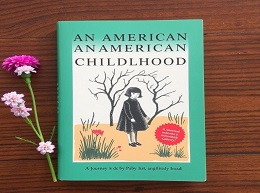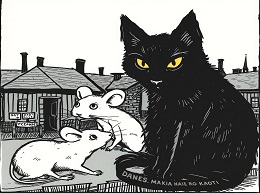The Hiding Place

Review of "The Hiding Place": A Testament of Faith and Resilience
Corrie ten Boom’s "The Hiding Place" is a powerful memoir that chronicles her experiences during World War II. Published in 1971, this remarkable book details the courage, faith, and resilience of Corrie and her family as they risk their lives to help Jews escape the horrors of the Holocaust. This review delves into the profound narrative, exploring its themes, characters, and the enduring impact of its message. Through detailed examples and thoughtful analysis, we will uncover why "The Hiding Place" continues to inspire and move readers around the world.
The Premise: A Family of Heroes
"The Hiding Place" is set against the backdrop of Nazi-occupied Holland. The ten Boom family, devout Christians living in the city of Haarlem, run a watchmaking business. The story begins with an idyllic portrayal of their lives before the war, highlighting their strong faith and sense of community. However, as the Nazis tighten their grip on Europe, the ten Boom family is faced with a moral dilemma: stand by or take action.
Corrie ten Boom, along with her father Casper and sister Betsie, decides to join the Dutch resistance. They transform their home into a safe haven for Jews and other persecuted individuals, creating a secret room—the titular “hiding place”—to conceal their guests. This act of defiance against the Nazi regime sets the stage for a gripping and harrowing tale of bravery and sacrifice.
Characters: Strength in Faith and Unity
As the memoir’s protagonist, Corrie ten Boom’s journey is both heart-wrenching and inspiring. Her character embodies resilience and unwavering faith. Corrie’s transformation from a sheltered watchmaker to a courageous resistance member is depicted with raw honesty. Her struggles, doubts, and ultimate triumphs resonate deeply with readers, making her a relatable and compelling figure.
One poignant example of Corrie’s strength is her ability to forgive her enemies. After the war, she encounters one of the former guards from the concentration camp where she was imprisoned. Despite the immense pain he caused, Corrie forgives him, illustrating the depth of her faith and the power of forgiveness.
Betsie ten Boom
Betsie, Corrie’s older sister, is portrayed as a beacon of hope and compassion. Her unwavering faith and gentle spirit provide a stark contrast to the brutality surrounding them. Even in the darkest moments, Betsie’s optimism and belief in God’s plan shine through. Her vision of turning their post-war home into a place of healing and restoration for survivors is a testament to her enduring hope and love.
An example of Betsie’s profound impact is her response to the harsh conditions in the Ravensbrück concentration camp. Instead of succumbing to despair, Betsie sees the suffering as an opportunity to minister to others. Her ability to find beauty and purpose in the midst of horror profoundly influences Corrie and leaves a lasting legacy.
Casper ten Boom
The ten Boom patriarch, Casper, is another pivotal character whose deep faith and moral integrity guide the family’s actions. His decision to help those in need, despite the imminent danger, is a powerful testament to his character. Casper’s wisdom and courage set the tone for the family’s resistance efforts.
One notable instance of Casper’s courage is when he responds to a young Jewish mother seeking refuge. Despite the risks, he assures her, "In this household, God's people are always welcome." His unwavering commitment to his faith and principles provides a strong foundation for the family’s actions.
The Watch Shop and Beje House
The ten Boom’s watch shop and home, Beje House, serve as the primary setting for the first part of the memoir. The cozy, bustling household contrasts sharply with the encroaching darkness of the war. The transformation of the Beje into a sanctuary for the persecuted is described in vivid detail, highlighting the ingenuity and resourcefulness of the ten Boom family and their collaborators.
The secret room, ingeniously hidden behind a false wall in Corrie’s bedroom, becomes a symbol of hope and defiance. The meticulous planning and execution of the hiding place underscore the family’s dedication and courage. The tension and suspense of hiding their guests during Nazi raids are palpable, drawing readers into the gravity of their situation.
Concentration Camps
The latter part of the memoir shifts to the grim reality of the concentration camps, where Corrie and Betsie are eventually imprisoned. The descriptions of Ravensbrück are harrowing, painting a stark picture of the inhumane conditions and relentless suffering endured by the prisoners. Despite the bleakness, moments of kindness and solidarity among the women offer glimpses of hope.
Corrie’s accounts of the camp highlight the stark contrasts between the cruelty of the guards and the resilience of the inmates. The secret Bible study groups and acts of kindness among the prisoners illustrate the enduring strength of the human spirit. These moments serve as powerful reminders of the capacity for goodness even in the most dire circumstances.
Themes: Faith, Resilience, and Forgiveness
Faith is the cornerstone of "The Hiding Place." The ten Boom family’s unwavering belief in God’s providence guides their actions and sustains them through unimaginable hardships. Corrie’s spiritual journey, marked by moments of doubt and reaffirmation, is a central theme. Her faith, tested in the crucible of suffering, emerges stronger and more profound.
One striking example of faith in adversity is the prayer meetings held in the concentration camp barracks. Despite the risk of severe punishment, Corrie and Betsie gather the women to read the Bible and pray, finding solace and strength in their faith. These gatherings become a lifeline, offering spiritual nourishment amidst the physical and emotional torment.
Resilience and Courage
The resilience and courage displayed by the ten Boom family and their fellow resistance members are awe-inspiring. Their willingness to risk everything for the sake of others exemplifies the best of humanity. The memoir is filled with acts of bravery, from smuggling ration cards to orchestrating escape plans, each undertaken with the knowledge of the severe consequences if caught.
Corrie’s own resilience is highlighted during her time in solitary confinement. Deprived of human contact and subjected to psychological torment, she clings to her faith and memories of her family. Her determination to survive and hold onto hope, despite the overwhelming odds, is a testament to her inner strength.
The Power of Forgiveness
Forgiveness is a profound and challenging theme explored in "The Hiding Place." Corrie’s journey toward forgiveness, especially in the face of such immense suffering, is deeply moving. Her ability to forgive her captors and tormentors, inspired by her faith, offers a powerful lesson in grace and compassion.
One of the most compelling moments in the memoir is Corrie’s encounter with a former SS guard after the war. Struggling with her own feelings of hatred and resentment, she ultimately finds the strength to forgive him, demonstrating the transformative power of forgiveness. This act of grace not only frees her from the burden of bitterness but also exemplifies the teachings of her faith.
Legacy and Impact
Since its publication, "The Hiding Place" has touched millions of lives worldwide. Its message of faith, hope, and resilience continues to inspire readers across generations. The book has been translated into multiple languages and adapted into a successful film, further amplifying its reach and impact.
The legacy of "The Hiding Place" extends beyond its literary success. It serves as a reminder of the horrors of the Holocaust and the capacity for goodness in the face of evil. Corrie ten Boom’s story is a testament to the strength of the human spirit and the enduring power of faith and love.
A Timeless Tale of Courage and Compassion
"The Hiding Place" by Corrie ten Boom is more than a memoir; it is a profound testament to the power of faith, resilience, and forgiveness. The ten Boom family’s extraordinary courage and compassion in the face of unimaginable adversity offer a powerful and enduring message. Corrie’s deeply personal narrative invites readers to reflect on their own beliefs, values, and capacity for kindness.
Whether you are drawn to stories of historical significance, personal growth, or the triumph of the human spirit, "The Hiding Place" is a must-read. Its timeless lessons of faith, hope, and love continue to resonate, making it a book that inspires and challenges readers to this day.
Corrie ten Boom’s "The Hiding Place" remains a beacon of light in the darkness, offering profound insights into the strength of the human spirit and the transformative power of faith and forgiveness.













